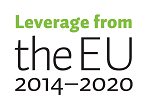Job Interview
It is excellent news, if you have been invited to a job interview. That means you have mastered the biggest obstacles already.
The objectives of the job inter view are exchanging information and evaluation, from both sides. The employer wants to find out how the person would adapt to the job, position, team and organization. At the same time, it is a chance for you to find out, whether the job is also suitable for you.
There are different types of job interviews: Phone/ Skype interview, individual interview, group interview, work simulation, aptitude tests or a combination of some of them.
Before you participate in an interview you should collect some background information about the company. Be prepared to answer different kinds of questions not only about you and why you are the most suitable candidate, but also about things related to the company and the tasks available.
Frequently asked questions in a job interview
- Tell us about yourself
- What do you know about our organization?
- What are your strengths?
- What about weaknesses?
- What motivates you?
- If everything goes as you have planned – where do you see yourself in 3/ 5 years?
- What do you do in your free time?
- Why are you interested in this post?
- Why should we choose you?
- Is there something you would like to ask from us?
Questions that the employer should not ask is about religious or political beliefs, health, illnesses, family relations and planning, sexuality, military or non-military service as well as ethnic background.
Also, you should be prepared to answer your expectations regarding salary, but do not bring up the topic of salary and benefits yourself, the employer will come to the point and being too keen on this matter may seem greedy.
However, you should also be prepared to ask questions about the job in order to show enough interest and make the most of the interview for you too.
Questions that you may ask from the employer
- What kind of expectations do you have for the employee who will be selected?
- How could a typical working day look like?
- What are the most important tasks in this job?
- What do you think would be the biggest challenges in the job?
- What kind of possibilities is there for career progression and personal development?
- How about employees’ possibilities to educate themselves further?
- How is the recruiting process going to continue after the interview?
Try to be relaxed and yourself, remember that the interviewers are often nervous themselves. Try to approach positively to negative aspects and only speak positive of your previous employer. Be consistent, logical and honest. Do not be vague in your statements but give clear examples of achievements and show your motivation. Also pay attention to your body language and remember to keep eye-contact. Not looking in someone’s eyes is mostly perceived as dishonest and crossed arms or legs give a closed-minded perception. It is better to lean slightly forward to the person speaking and keep an open arm position, i.e. on the arm rests.
When you go to the interview, reserve enough time to find your way and be there on time which means ten to fifteen minutes early. The first impression is very important, dress decently and don’t smoke just before the interview and remember to close your phone. It is also advised to have a good night sleep before the interview. Shake hands with the interviewers and introduce yourself immediately at the beginning of the interview. Remember to bring a copy of your CV. At the end of the interview, do not forget to thank the employer for the time.
Should you not get the job, it is important that you figure out the reasons and think carefully of how you could improve your performance. Looking for a job can be frustrating, but don’t lose your energy and your efficiency. Keep trying! Activity is always rewarded at some point. During the job application process, you will learn many things about yourself and acquire experiences that you can use later in similar situations.

